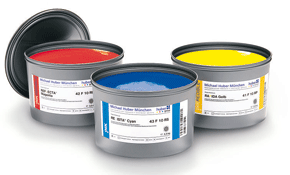
Every few years the 30-day rule banning parallel importation of books goes before another committee to question its value in a free market economy. Last week marked the deadline for submissions to the latest Productivity Commission study into the Australian book industry — the sixth in about 20 years.
What it’s really about is territorial copyright. If a local publisher can supply a title within 30 days of its worldwide publication all other editions of the book can be barred from entering the country. Local publishers and authors have done well from this rule, and so have most booksellers, although they might not say so.
The argument is that without the rule books would be cheaper, and more would be read by more people. What this view doesn’t really consider, though, is the local publishing industry, how it operates, how it supports local authors, its role in Australian society of telling our own stories, and for our part here, local printers. It also doesn’t recognise that very few other countries have an open market.
The book trade is again nervous that the status quo will be overturned and major retailers will have carte blanche to import books from wherever they like. And there’s no doubt that they’d be able to find books more cheaply than here. The most interested parties on the retail side for change are (of course) Woolworths, Myer and Dymocks, all of whom stand to make a motza if the 30-day rule is discarded.
It seems likely that the Commission will return a finding calling for the ports to open to any books from anywhere. What really matters, though, is if Minister for the Arts, Peter Garrett, takes the finding on board, and runs with it or rejects it.
If the ports are opened and book prices drop, will the Australian populace suddenly find a new literacy and rush to booksellers in search of new editions from, say, Patrick White or Tim Winton? Is price the deciding factor for those who don’t buy books at the moment? Most likely not. The more likely scenario is one of marginally higher sales of popular thrillers, bodice rippers and action adventure tales, printed overseas, from mega chain stories.
It seems a high price to pay — jeopardising the long-term growth of the local publishing and book printing industries — so we can pay a couple of dollars less for the latest Stephen King or Dan Brown yarn.
Have your say in our poll on the right-hand sign of this page.
Comment below to have your say on this story.
If you have a news story or tip-off, get in touch at editorial@sprinter.com.au.
Sign up to the Sprinter newsletter



